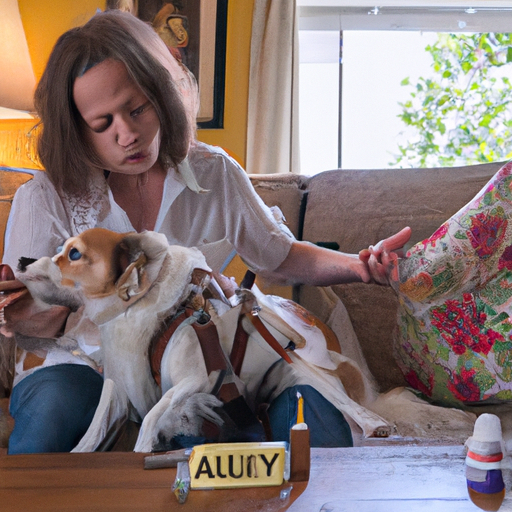Introduction
As a loving caregiver to your furry friend, you are the first line of defense when it comes to their health. Just like humans, dogs can have allergic reactions to a variety of substances, from food to pollen. Learning how to identify and treat these reactions can make a world of difference in your pet’s comfort and wellbeing.
Identifying Allergic Reactions
Your dog can’t tell you when they’re feeling off, so it’s up to you to watch for signs of an allergic reaction. These can include:
- Skin irritation or inflammation
- Excessive scratching or licking
- Swelling of the face, ears, lips, eyelids, or earflaps
- Red, inflamed eyes
- Sneezing
- Vomiting
- Diarrhea
Common Allergens
Dogs can be allergic to a wide variety of substances. Here are a few of the most common allergens:
- Foods, such as beef, chicken, dairy, or wheat
- Flea saliva
- Dust and house mites
- Pollen from grass, trees, and weeds
- Mold spores
- Cleaning products
- Certain fabrics
- Rubber and plastic materials
At-Home Remedies
While severe reactions should always be treated by a veterinarian, minor reactions can often be managed at home. Here are a few treatments you can try:
- Bathing: A gentle bath with hypoallergenic shampoo can soothe irritated skin and wash away allergens.
- Topical Treatments: Over-the-counter creams and sprays can relieve itching and inflammation.
- Diet Changes: If food allergies are suspected, a change in diet may be necessary.
| Symptoms | Possible Allergen | At-Home Treatment |
|---|---|---|
| Itchy skin, Redness | Flea saliva, Plants, Cleaning products | Bath, Topical treatments |
| Vomiting, Diarrhea | Food, Certain plants | Diet changes, Hydration |
When to Consult a Vet
If your dog’s symptoms persist or worsen despite at-home treatments, it’s time to consult a vet. They can conduct allergy tests and prescribe stronger treatments if necessary.
FAQ
Q: Can dogs have allergic reactions to vaccines?
A: Yes, although it is rare, dogs can have allergic reactions to vaccines.
Q: Can a dog develop allergies later in life?
A: Yes, dogs can develop allergies at any age, though some are more prone to certain allergies based on their breed or genetic history.
Q: Can I give my dog antihistamines for their allergies?
A: While some human antihistamines can be safe for dogs, always consult a vet before giving your pet any new medication.
Caring for a dog with allergies can be a challenge, but with knowledge and patience, you can help your pet live a comfortable, happy life.



